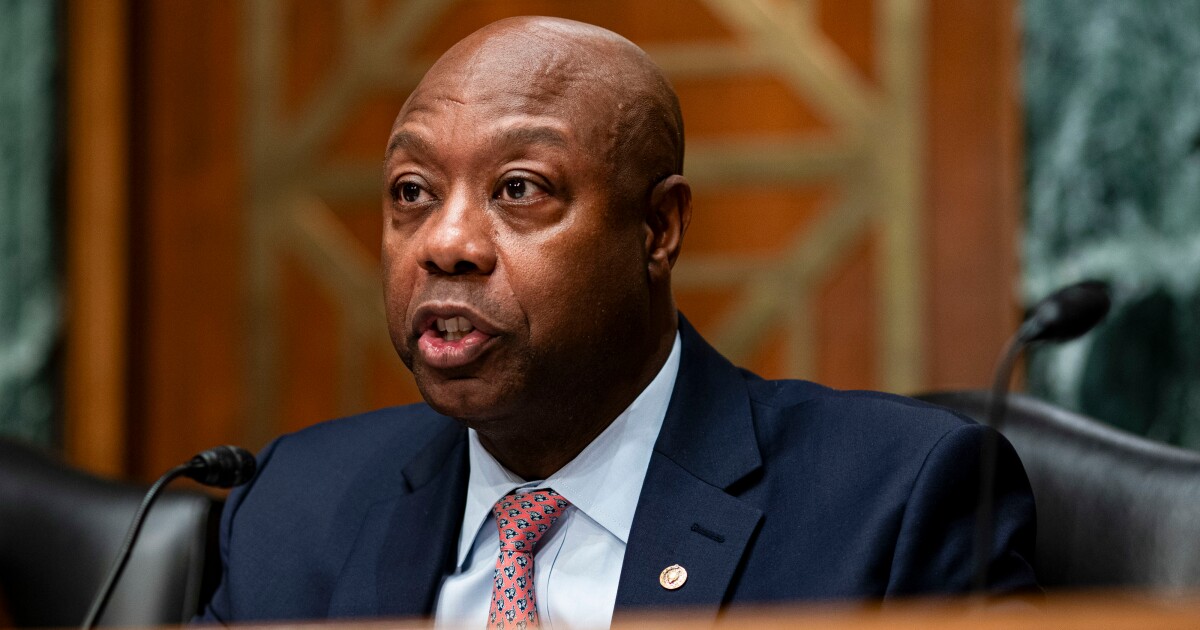In a significant development for the cryptocurrency landscape, the U.S. Senate is poised to pass the GENIUS Act, a comprehensive stablecoin bill that could reshape banking regulations and allow crypto banks to operate nationally with ease. Scheduled for a full vote, this legislation has gained traction amid bipartisan support, reflecting a growing recognition of the need for a cohesive regulatory framework in the rapidly evolving crypto sector.
The GENIUS Act outlines essential guidelines for payment stablecoins, providing clarity in an environment that has often been characterized by uncertainty. As the Senate Banking Committee Chair Tim Scott, R-S.C., champions this bill, it stands out as one of the most consequential pieces of financial legislation since the 2018 capital tailoring law. This bill’s provisions could fundamentally alter how banks compete with payment firms and other crypto entities.
A crucial aspect of the GENIUS Act is its provision allowing state-chartered special purpose depository institutions (SPDIs) to operate across state lines without the cumbersome burden of obtaining approval from each state’s banking regulator. This maneuver aims to streamline the operations of crypto banks, facilitating their ability to expand in a market that is increasingly interconnected and tech-driven.
Michele Alt, a partner at the Klaros Group, emphasized the significance of this provision, noting the potential for a substantial expansion of SPDIs. The question arises: what innovative financial models could this pave the way for in the burgeoning crypto banking sphere? However, this progressive trajectory has not come without criticism. Organizations like the National Conference of State Legislatures and the Conference of State Bank Supervisors have voiced concerns over the implications of this bill on state banking authority and consumer protection.
In response to these apprehensions, lawmakers have made amendments to the GENIUS Act, narrowing the scope of the problematic provisions. Payment stablecoin subsidiaries of SPDIs are now allowed to operate without prior state approval, but only if they adhere to regulations deemed “substantially similar” to those governing insured banks. Nevertheless, critiques persist regarding the bill’s lack of stringent capital and liquidity requirements for these uninsured institutions.
Art Wilmarth, a respected bank law professor at George Washington University, cautioned against the potential ramifications of not ensuring adequate oversight. The absence of robust consumer protection mechanisms could lead to financial instability and a lack of accountability for out-of-state institutions. Although the bill includes a segment intended to safeguard state consumer protection laws, inconsistencies and loopholes have undermined its effectiveness.
Concerns over these provisions are not unfounded. For instance, the fear is that as SPDIs gain wider national access, they could grow to a size that poses systemic risks. The unique business models of SPDIs, which often focus on servicing the crypto sector, may not fit neatly into existing consumer protection frameworks, thus leaving consumers vulnerable.
As states like Wyoming, Georgia, and Connecticut continue to offer SPDI charters tailored for innovative financial models, the interplay between state and federal regulations becomes increasingly complex. With the potential for SPDIs to sidestep state enforcement of consumer protections, one must question the balancing act of fostering innovation while safeguarding consumers.
The GENIUS Act’s passage in the Senate does not guarantee an easy journey through the House. Currently, the House version of the bill lacks a corresponding provision similar to the one in Senate legislation, which could lead to a protracted negotiation process between the two chambers.
At the heart of this debate lies the fundamental question of regulatory trust. Experts point out the historical context of dual banking systems in the U.S., characterized by a mistrust of bank regulators across state lines. Advocates for the GENIUS Act argue that fostering national competition among banks enhances diversification and ultimately benefits consumers. This perspective builds upon the premise that an interconnected banking landscape will facilitate better financial products and services.
As we anticipate the outcome of this pivotal vote, the implications for the cryptocurrency and financial industry as a whole are immense. With regulations evolving to embrace innovation and technological advancements in finance, the urgency for a structured approach to stablecoins could redefine banking norms.
In conclusion, while the GENIUS Act may usher in a new era for crypto banks, the unfolding narrative highlights the need for vigilant oversight. Ensuring consumer protection and maintaining financial stability must remain at the forefront of discussions, as regulatory frameworks adapt to accommodate the dynamic nature of the cryptocurrency marketplace. The future of our financial systems hinges on how well we can navigate these complex waters, balancing innovation with the imperative to protect all stakeholders involved.
Source link









